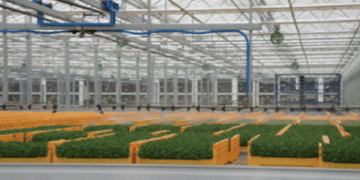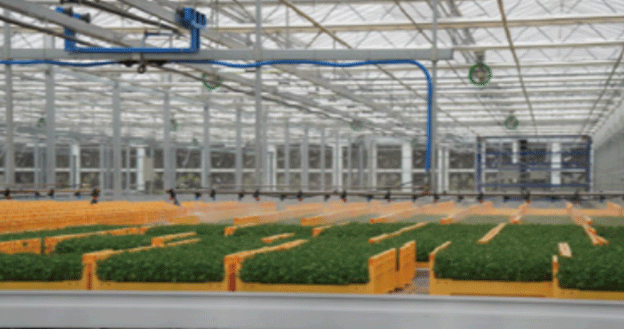Murakami Farm, the top producer of sprouts in Japan, is spearheading an agricultural revolution, setting its sights on becoming the world’s leading producer of facility-grown vegetables by 2040. Known for its innovative cultivation of nutrient-dense vegetables, such as broccoli super sprouts and pea shoots (tōmyō), the company is not only meeting increasing demand but also expanding its production centers across Japan to deliver fresher produce while reducing logistics challenges.
Expansion for Growth and Freshness
Murakami Farm is rapidly expanding its production infrastructure to meet growing consumer demand. In 2023, the company completed its first production center in Tohoku, a 60,500-square-meter facility in Miyagi Prefecture, ensuring that consumers in northern Japan can enjoy fresher produce by reducing transportation times. Further north, in Hokkaido’s Date City, a 29,000-square-meter production center is set to begin operations by the end of 2024. This expansion is aimed at addressing the “2024 logistics issue” in Japan, where a shortage of truck drivers is projected to impact the food supply chain.
Murakami Farm’s commitment to innovation is further evidenced by the Super Sprout Factory in Yamanashi, which began operations in 2021. This state-of-the-art plant factory, partially built underground, leverages stable temperatures to reduce energy consumption while ensuring optimal growing conditions. This facility is crucial for producing high-nutrient sprouts under controlled conditions, which supports year-round production.
Harnessing Technology for Superior Crop Management
A core part of Murakami Farm’s strategy is the integration of ICT (Information and Communication Technology) into its production centers. By connecting all facilities and sharing data on environmental conditions like light, temperature, and irrigation, the company can maintain high-quality production across different regions. Additionally, Murakami Farm is advancing its data-driven approach by using AI to analyze and predict the best cultivation methods, optimizing yield and quality.
The company plans to license its technology globally, turning its cultivation expertise into a product that can benefit farms worldwide. Murakami Farm envisions a future where traditional agriculture evolves into a “brain-powered” business, using intelligence and data to drive growth and innovation.
Resilience and Market Leadership
Murakami Farm’s current success is built on resilience. In 1996, the company faced a major crisis when a foodborne illness outbreak was erroneously linked to kaiware daikon (daikon sprouts), a product they produced. While the allegations were later proven false, the company’s reputation suffered. However, Murakami Farm bounced back by diversifying its offerings and developing new products like the broccoli super sprout, known for its high levels of sulforaphane, a compound with potential health benefits. These high-nutrient vegetables have since become long-term bestsellers, driven by consumer interest in health and wellness.
Murakami Farm has also tapped into the high-end culinary market with its micro herb series, colorful and flavorful herbs used in gourmet restaurants. This diversity in product offerings demonstrates the company’s strength in product development and marketing, positioning it as a leader not only in mass production but also in niche markets.
A Vision for the Future
At the heart of Murakami Farm’s strategy is a commitment to its people. CEO Murakami emphasizes the importance of hiring employees who embody the company’s principles of self-driven thinking and action. Murakami envisions a workforce that is not only encouraged to innovate but is also rewarded for taking initiative and learning from both successes and failures. The company’s internal motto, the “3 Cs”—Challenge, Change, Chance—guides its approach to innovation and growth. By fostering a corporate culture of continuous learning and adaptation, Murakami Farm is setting the stage for long-term success.
Murakami Farm’s journey from local sprout producer to a global leader in facility-grown vegetables is a testament to the power of innovation, resilience, and strategic investment in technology. As it continues to expand its production capabilities and refine its cultivation methods, the company is poised to meet growing consumer demand for fresh, high-quality, and nutrient-rich vegetables, while setting a new standard for sustainable, data-driven agriculture worldwide.































